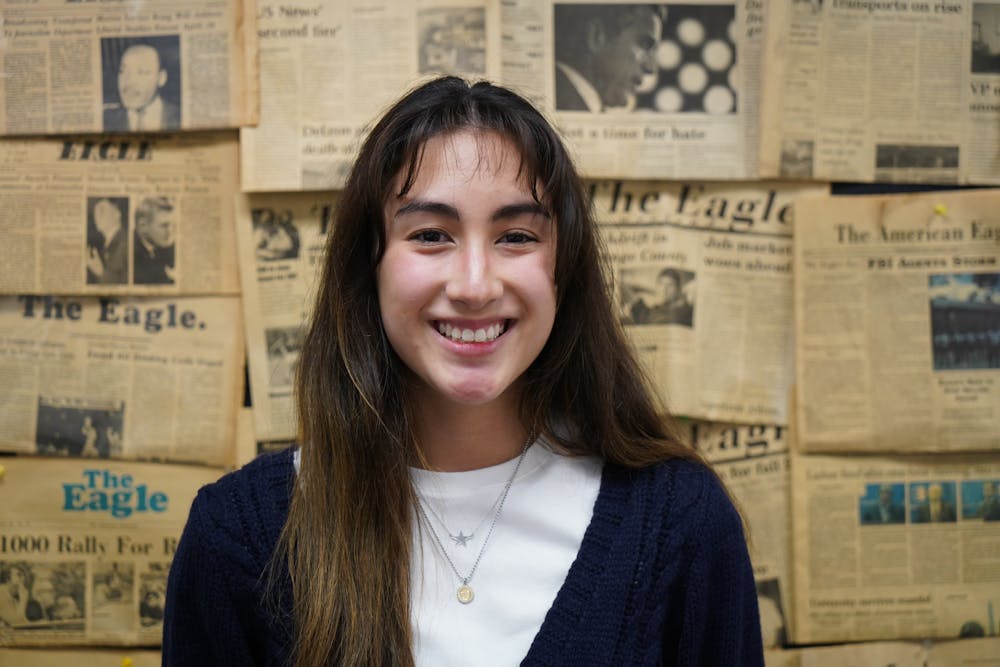The following piece is an opinion and does not reflect the views of The Eagle and its staff. All opinions are edited for grammar, style and argument structure and fact-checked, but the opinions are the writer’s own.
One of the infamous staples of college is final exam week. It’s a whirlwind of cumulative exams, relentless study sessions and the pressure of knowing that every test is part of the final measure of a semester’s worth of work. Add the self-label of being a “bad test taker” into the mix, and suddenly exam season is a whole different kind of monster. But what exactly is being a bad test taker, and is it just an excuse students use for doing poorly on exams?
I’ve dabbled with this question for a while. I’ve had my fair share of exam flukes, but is this purely my fault for not studying enough? For me, exams feel like a whirlwind where focus and clarity vanish as soon as the timer starts. Throughout my time as a student, I’ve found that not everyone’s way of taking exams is linear; some students need a little extra academic support, and it’s completely okay to seek accommodations if you feel yourself struggling more than others.
The label of a “bad test taker” can weigh heavily on self-worth. However, I’ve learned that being a poor test taker doesn’t make someone a poor learner. Tests measure one specific set of skills, often neglecting the deeper, creative thinking that reflects our intelligence and understanding.
Navigating tests with anxiety and other mental health issues adds layers of complexity. After completing an exam that almost made me pass out due to the anxiety of hearing papers flipping and pencils scribbling, I decided to look into testing accommodations. The process wasn’t easy; part of me felt like I was admitting weakness, and there was a persistent voice in my head suggesting that maybe I just didn’t study hard enough. Over time, I began to realize that this kind of self-stigma was harmful. Academic accommodations aren’t about taking the easy way out; they are about leveling the playing field.
The stigma and second-guessing surrounding accommodations often keep people from seeking the support they need. But for those with learning disabilities or mental health conditions, accommodations aren’t an unfair advantage. Our worth as students isn’t determined by our ability to adhere to standard testing methods.
If you’re a student dealing with factors that impact your test performance, consider reaching out for accommodations, and if you don’t qualify, you can research test-taking strategies to help you succeed. Recognizing and embracing your own needs isn’t a weakness — it’s a smart, proactive approach to learning. After all, there’s nothing to gain from holding onto self-stigma and negative energy about “bad test-taking.” Testing is only one way to measure knowledge, and everyone deserves a fair chance to succeed.
Mari Santos is a junior in the School of Public Affairs and a columnist for The Eagle.
This piece was edited by Alana Parker, Rebeca Samano Arellano and Abigail Turner. Copy editing done by Luna Jinks, Ariana Kavoossi, Emma Brown, Sabine Kanter-Huchting, Ella Rousseau, Charlie Mennuti and Nicole Kariuki.





